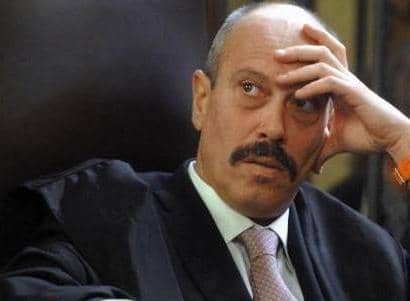The Italian prosecutor involved in the trial of Shell, Eni and others, in the controversial Oil Prospecting Licence (OPL) 245 case, Fabio De Pasquale, has been demoted by the country’s Superior Council of the Judiciary (CSM) for his role in the proceedings.
An Italian newspaper, Ilgiorno, reported that De Pasquale was demoted for “lack of impartiality and fairness” in the way he handled the prosecution at the Court of Milan in Italy.
Recall that in 2021, a former Nigeria’s Minister of Justice and Attorney General of the Federation, Mohammed Bello Adoke (SAN), had petitioned Italy’s Minister of Justice over the conduct of De Pasquale.
Adoke, through his lawyers, accused the prosecutors of unlawful acts of intimidation/threat to life, forgery of documents/evidence intended for unlawful interference with the administration and perversion of the course of justice.
The Italian was also said to have hidden critical evidence that would have exonerated the defendants and is now facing a separate hearing over the allegation.
Adoke said the prosecutors acted “maliciously and unprofessionally” to his detriment despite the fact that he was not a direct party to the criminal prosecution and was not on trial before the Milanese court.
The court had discharged all persons and companies accused of fraud and bribery in the transaction. De Pasquale, who was assistant prosecutor at the Court of Milan with semi-managerial prosecuting functions, was rejected by 23 of the 27 members of the CSM, including its Vice President, Fabio Pinelli, while four members abstained from voting.
“It is therefore demonstrated that De Pasquale lacks the prerequisites of impartiality and balance, having repeatedly exercised jurisdiction in a manner that was neither objective nor fair with respect to the parties as well as without a sense of proportion and without moderation,” the CSM resolved.
The judges opined that De Pasquale’s style projected “a negative prognostic judgment” on the possession of the prerequisites of impartiality and balance also for the purposes of confirmation in the magistrate in semi-managerial functions.
De Pasquale is on trial in Brescia for omission of official documents while disciplinary proceedings and an official transfer procedure due to “environmental incompatibility” have been opened against him at the CSM. Both proceedings against him are still ongoing.
By implication, the failure to confirm De Pasquale by the CSM means he will lose his role as deputy prosecutor and will return to being a simple substitute and will not be able to apply for further management positions in the future.
The judges of the Milan court said it was “incomprehensible” that the public prosecutor chose “not to file among the proceedings a document which contains extraordinary elements in favour of the defendants”.
De Pasquale, who prides himself as an anti-corruption hunter, had been looking to get Eni convicted over allegations of corporate fraud. The OPL 245 case provided him an opportunity to prosecute what transparency campaigners described as “the biggest corporate fraud in history”.
Adoke was not in trial in Italy, but the Economic and Financial Crimes Commission (EFCC) in Nigeria had filed several cases against him in Nigeria and his name was constantly mentioned in the Milan court, although the court did not make any adverse pronouncement against him in its verdict.
One of the cases filed against Adoke was that he collected a $2 million bribe from the $1.1 billion paid to Malabu and bought a property in Abuja, an allegation he denied and for which he has been cleared.
But Adoke alleged that the prosecutor deliberately concealed his failed N300 million mortgage transaction with Unity Bank from the Milan court just to create the impression that it was a bribe.
He also alleged that an email purportedly sent by him from the account of a property company mentioned in the OPL 245 payments was forged, stressing that a phone conversation was stage-managed to implicate him.






